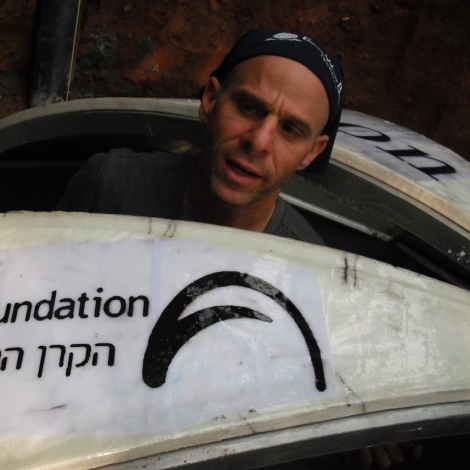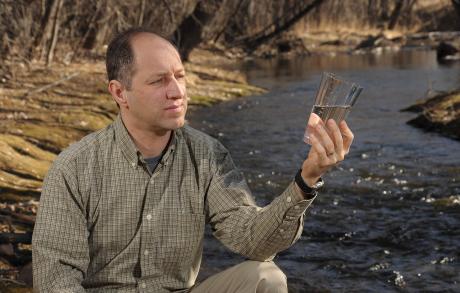Mark Talesnik asks tough questions in his TEDxHiriya talk held in Tel-Aviv, Israel. “Who is training the young people of today to deal with the problems that my parents’ generation created and that my generation ignored?” he asks. He follows it with a list of questions that have no easy answers, including this one: Why aren’t there more engineers in leadership roles in our society?
He is trying to answer the first question through his own work as an educator, an associate professor in the civil and environmental engineering department at Technion – Israel Institute of Technology. He trains “global engineers,” and he explains that “engineer” is an inclusive term. “We’re all engineers and we want to engineer a better world,” he says. To that end, he founded Engineers Without Borders – Technion, he formed the Center for Global Engineering at Technion, and for the last three years he has led expeditions of multidisciplinary student teams to construct biogas reactors in Nepal.
Now it’s our turn to ask the questions. We present Five Questions with Mark Talesnik.
E4C: You give a talk called “Engineers with Soul, Breeding a Global Engineer,” in which you ask, How can students prepare for the challenges they will face 10 or 20 years from now? Do you have a quick answer?
MT: [See below]
E4C: What will the field of engineering for global development look like in 10 or 20 years?
MT: I will try to answer the two above together. First of all, I think students should be putting more pressure on universities to develop more programs to prepare students for these challenges. From what I see, students are more in tune with the issues than professors seem to be. Not every student needs to do this. I figure two percent of a student body can make this tip.
“I realize that I cannot change the world, but maybe the young people that I come in touch with can.”
We still do not know what tools will be available to us in 10 to 20 years, but we do know what the issues will be, that 80 percent of the globe will be deprived of their basic human needs. We need to have students learn the issues of the 80 percent. We need for them to build a relationship with developing communities and with students who come from developing communities. I think combined programs between developing and developed sectors is the key. Within 10 years, any university that respects itself will have a program like this.
E4C: Is there a set of characteristics that set global engineers apart?
MT: I am not sure if they are set apart, but from my experience, I have come to believe the following (I may be completely wrong, but I challenge you to test the ideas): 1. Bicultural; by that I mean people that have made a cultural jump in their lives. Maybe they moved from country to country, or continent to continent. Maybe their parents come from different cultures. These people have seen more and seem to be more open minded to different heritages. 2. Females; they are more open to new ideas, more compassionate, and can do more than one thing at a time. 3. They come from fields of study and professions that involve high degrees of uncertainty. So they are not afraid of the unknown. Just see how many geotechnical engineers are involved in sustainable development!
E4C: How do Engineers Without Borders and other programs like it benefit the engineers who take part in them? We’re not asking about how the engineers can benefit the people they serve, but how the service can benefit the engineers.
MT: I like this question. I believe service programs like Engineers without Borders and educational service modules like Engineering for Developing Communities instills three important qualities in our student bodies: 1. Social Conscience; 2. Hands on abilities; and 3. Leadership skills.
I spent a month last summer in Nepal with 40 students, 10 of them from Israel. I watched those 10 this past year and I realize now that I came home with 10 leaders! I can only hope that the other 30 are following the same path in their own countries.
E4C: Story time: Would you tell us about a time when you realized that you’re in the right line of work?
MT: For a long time I did exactly what my university wanted me to do. Write papers that no one read, give lectures and apply for grants that more often than not I did not win. I was having zero positive impact.
Eight years ago I made the jump. I think that I realized that it was right for me about five years ago. I was watching a group of students work in a Bedouin village in the Negev desert of Israel. They were doing a survey on energy deficiencies and they were working out a strategy in building a problem tree. I realized then that I could never make students get so excited about doing anything in my old line of work. I realized that I could walk away, that they were on the right path, they had already been bitten by the bug. I think what I am trying to say, is that I realize that I cannot change the world. But maybe the young people that I come in touch with can.

